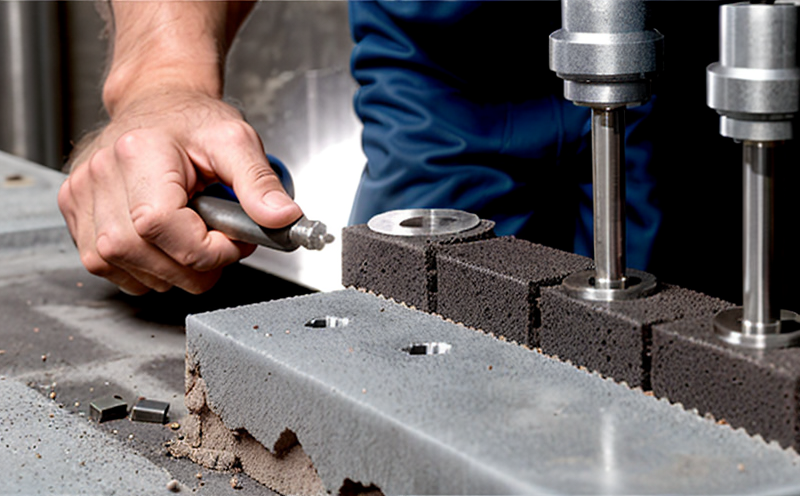Application of hardness testing in quality control
The Vital Role of Hardness Testing in Quality Control Ensuring Reliability and Consistency for Your Business
In todays fast-paced industrial landscape, businesses are constantly striving to maintain the highest standards of quality in their products. One critical aspect of ensuring this excellence is through the application of hardness testing in quality control. By understanding the intricacies of hardness testing and its far-reaching benefits, companies can make informed decisions to improve their product reliability, consistency, and overall performance.
At Eurolab, our team of expert technicians offers laboratory services that cater specifically to your hardness testing needs. With years of experience in providing precise and accurate results, we are confident in our ability to support you in achieving the highest standards of quality control. In this article, we will delve into the advantages of using hardness testing in quality control, highlighting its significance for businesses across various industries.
Why Hardness Testing is Crucial in Quality Control
Hardness testing is a non-destructive method used to determine the resistance of materials to deformation or wear. It plays a vital role in ensuring that your products meet the required standards of strength and durability. By employing hardness testing, you can
Verify product consistency Hardness testing helps ensure that every unit produced meets the specified standards, thereby maintaining consistency across batches.
Detect potential defects Early detection of defects or material weaknesses enables swift corrective actions to be taken, preventing costly recalls and damage to your brands reputation.
Optimize production processes By identifying areas where hardness levels can be improved, businesses can refine their manufacturing processes, leading to increased efficiency and cost savings.
Key Benefits of Hardness Testing in Quality Control
Advantages for Manufacturers
Increased product reliability Hardness testing ensures that products meet the required standards of strength and durability.
Improved production efficiency By optimizing production processes, manufacturers can reduce waste, lower costs, and increase productivity.
Enhanced customer satisfaction Products that consistently meet quality standards lead to higher customer satisfaction rates.
Benefits for Businesses
Reduced liability risks Regular hardness testing helps minimize the risk of product failure or injury, protecting your business from potential lawsuits.
Improved brand reputation Demonstrating a commitment to quality control through regular hardness testing reinforces your brands reputation as reliable and trustworthy.
Compliance with industry regulations Hardness testing ensures that products meet or exceed regulatory requirements, reducing the risk of non-compliance fines and penalties.
How Eurolab Can Support Your Quality Control Efforts
At Eurolab, our team is dedicated to providing accurate and timely hardness testing results. We understand the importance of maintaining high standards in quality control and are committed to helping your business achieve excellence. Our laboratory services include
Material characterization We provide detailed reports on material properties, including hardness levels, tensile strength, and yield point.
Product verification Regular hardness testing ensures that products meet or exceed specified standards.
Process optimization By analyzing hardness test results, our team can help you refine your production processes to improve efficiency and reduce costs.
Frequently Asked Questions
Q What types of materials can be tested for hardness?
A Eurolab offers hardness testing services for a wide range of materials, including metals, alloys, plastics, ceramics, and composites. Please contact us for specific information on the types of materials we test.
Q How do I prepare my samples for hardness testing?
A Our experienced technicians will guide you through the sample preparation process. In general, samples should be clean, dry, and free from any surface contaminants.
Q Can I get immediate results after submitting my samples?
A While we strive to provide timely results, processing times may vary depending on the complexity of your request. Our team will notify you as soon as your results are ready.
Conclusion
In conclusion, hardness testing is an indispensable tool in quality control, ensuring that products meet or exceed specified standards of strength and durability. By incorporating hardness testing into your quality control protocol, businesses can improve product reliability, consistency, and overall performance. At Eurolab, we offer comprehensive laboratory services designed to support your quality control efforts, providing accurate and timely results that help you maintain the highest standards in your industry. Contact us today to learn more about our hardness testing services and how they can benefit your business.
Insert Call-to-Action (CTA)
Dont let subpar products risk your reputation and bottom line. Trust Eurolabs expertise to ensure your products meet or exceed industry standards of quality control through hardness testing.




